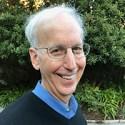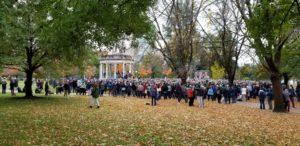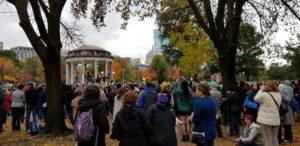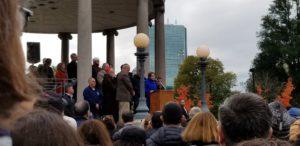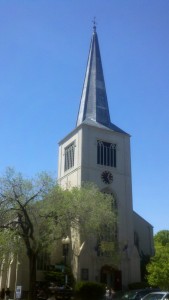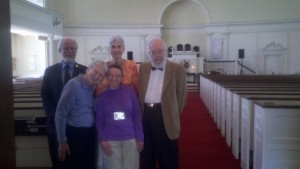Guest Post: Gordon Lewin on dealing with hate before and after Colleyville
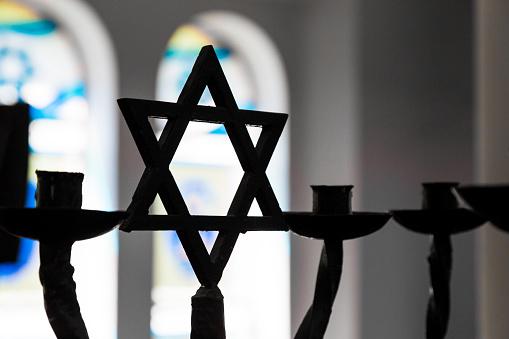
After Colleyville, how do we vaccinate against hate? Keep building bridges..
By Gordon Lewin | January 26, 2022
Erev Rosh Hashanah 1986: It was a perfect New England autumn day, with crisp air and the leaves beginning to turn colors.
As my wife and I walked through the Harvard campus on our way to Hillel services, we saw something strange and unexpected. The building we were heading for was surrounded by eight police cars with a policeman standing next to each car.
As we walked up the front steps of the auditorium, we saw eight additional policemen who were amiably chatting among themselves and saying hello as we passed by.
When services began, I expected the rabbi to say something. He didn’t. Perhaps he didn’t need to. A few weeks earlier, Palestinian terrorists had attacked a synagogue in Istanbul, Turkey, with machine-gun fire and grenades. Twenty-two worshippers died during Shabbat services.
Istanbul was an ocean away, but Harvard is a high-profile place. Better safe than sorry. At the time, I was not alarmed.
Let’s fast-forward 22 years and across the continent to Stanford University. It’s another beautiful autumn day. My wife and I are walking to High Holiday services across a campus plaza to an auditorium being used by Hillel.
We arrive to find a contingent of four policemen out front. They were not greeting the worshippers. They were not smiling. It was the SWAT team, decked out in body armor and helmets while holding large weapons. As we walked past, they didn’t say hello. They were busy scanning the plaza for possible threats, which fortunately did not arrive.
Sitting inside, I had an unsettled feeling. On the one hand, I felt present at services. Yet I also felt the presence of heavily armed policemen outside the building protecting me while I prayed.
But police cannot not always be on hand, as we have witnessed over the past few years at attacks at Tree of Life in Pittsburgh, Chabad in Poway and now Beth Israel in Colleyville, Texas.
I am grieving, and not just for those who have suffered. I am grieving for myself, for my loss of optimism.
My father and I once had a friendly disagreement about antisemitism. He grew up in a poor family in a rough neighborhood. Antisemitism was a daily experience for him. Jewish boys had to walk home from school in groups for protection against Irish gangs. Bigotry was commonplace and discrimination was everywhere. It was perfectly legal.
I grew up in the suburbs and went to excellent public schools. I have had unlimited opportunities. I understood antisemitism from my father’s stories, not from my actual experience.
So I thought antisemitism was slowly but surely dying out in America. In recent years, national surveys have confirmed that antisemitic attitudes have indeed been declining.
My father was more pessimistic, even though he agreed that things were getting better. In fact, he once told me “no other country has been as good to the Jews as America.” However, he explained that life was good for the Jews in Spain until it wasn’t. Then there was Hitler. In Germany, the pessimists went to America and the optimists went to Auschwitz. Israel was important, because you never know what can happen in the future.
So what is happening now?
After the attack on the Tree of Life synagogue, I consulted with a dear older friend who was a Holocaust survivor.
“Could we be facing a future Kristallnacht?” I asked her.
“Absolutely not. America is a totally different society,” she assured me.
Yet my friend would not move to senior housing on the Taube Koret Campus for Jewish Life in Palo Alto, which I thought would be a good place for her. She was afraid of living in a Jewish apartment building. It could be a target.
That’s the fear right now. We all know it’s great being Jewish in America, even more so now than in my father’s lifetime. Yet the concern today is about safety when we are together.
I spent 12 years serving on public school boards. My worst fear was losing students to a mass shooting, as I pictured attending their funerals. Our school board received briefings on school safety plans and drills. We supported having a policeman on every high school campus. During my tenure, there were lockdowns, but no one was ever hurt.
That’s the reality of public education today, and parents still send their children to school.
Synagogue boards are now facing the same unenviable task of addressing security, something that was once taken for granted.
Yet no matter how important, building security is not the whole solution.
A few years ago, a scientist friend compared antisemitism to a virus that can go nearly dormant while smoldering in small pockets until it mutates; eventually producing a new epidemic. To him, that analogy explained how anti-Zionism has emerged as the new politically correct antisemitism.
So how do we vaccinate against hate? For starters, we reach out, we don’t hunker down. We plan more interfaith activities, not fewer. We stay involved in our broader communities, we don’t withdraw.
In Texas, Beth Israel’s mission statement proclaims, “We believe in interfaith inclusion and transforming Jewish isolation through engagement, participation and volunteerism.” When the chips were down, the Beth Israel congregation did not feel alone as it witnessed an outpouring of support from all communities of faith in Colleyville.
Safety and security is on everyone’s mind, and therefore on the agenda of every Jewish institution. It will be addressed. Yet, it is also important to remember that this is a time for building connections.
